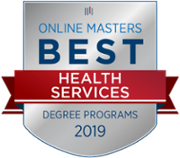This is an applied finance and accounting healthcare course, designed to provide decision makers with fundamental concepts in healthcare finance, accounting, budgeting, planning and forecasting. Does not count towards the MACC degree.
This course provides an introduction to the essential tools and techniques of health care financial management, including health care accounting and financial statements, managing cash flow, billings and collections, making major capital investments, determining cost and using cost information in decision-making in a health care environment. The course also covers such fundamental concepts as time value of money, the evaluation of financial statements, and pricing of financial instruments with an emphasis on their application to the health care environment. Students will also get exposure to developments in health care laws and regulations such as the Affordable Care Act.
This course will provide an overview of areas critical to the management of risk in healthcare organizations including areas of concern related to compliance with the wide variety of legal and statutory requirements mandated by current health policy.
This course focuses on the vital role services play in the economy and its future. It shows how the advanced economies of the world are now dominated by service(s), and virtually all companies, including those traditionally known as manufacturers, view services as critical to retaining their consumers today and in the future and surviving in the marketplace. Students will be exposed to the state-of-the-art in services management and marketing.
This course is designed to acquaint students with basic principles and concepts of human resource management within a health care organization. Topics to be covered Include recruitment, selection, compensation, employee retention, training and development, and legal compliance. Students will have the opportunity to study human resource related problems faced by various healthcare systems such as hospitals, integrated health care systems, managed care settings, private practices, and public health clinics.
This course is designed to provide a broad overview of Leadership and Organizational change theories, practices and research. Special attention will be given to critical thinking skills and the students' ability to communicate and lead effectively in the discussion chat room format.


